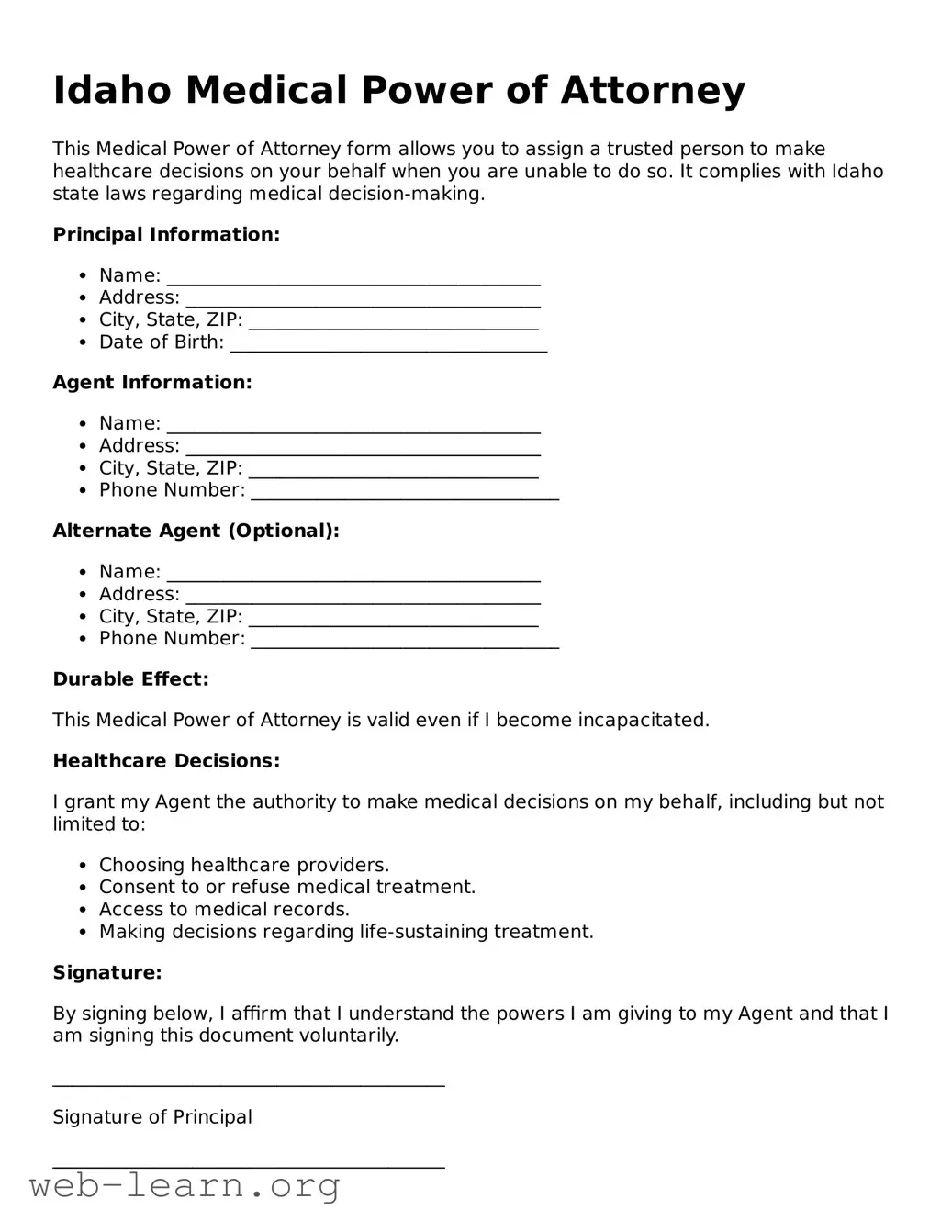Filling out the Idaho Medical Power of Attorney form is crucial for anyone wishing to ensure their healthcare wishes are respected in the event they are unable to make decisions for themselves. However, mistakes can occur during this process. Here are seven common errors individuals often make when completing this important document.
One frequent mistake is neglecting to choose a qualified healthcare agent. The person designated in this role should be someone trustworthy, understanding, and willing to advocate for your wishes. Many individuals select family members or close friends without considering their ability to handle such a significant responsibility. Selecting an agent with the right temperament and communication skills is essential for effective decision-making.
Another common error includes failing to provide clear instructions regarding specific medical treatments. It's important to articulate your preferences about healthcare in a way that is easy to understand. Vague language can lead to confusion, leaving your agent uncertain about your true wishes. Concrete statements about life-saving measures or preferred treatments will aid in making decisions that align closely with your values.
Some people overlook the need to update their Medical Power of Attorney in response to changes in life circumstances. Major events such as marriages, divorces, or the death of a designated agent can necessitate an update. Keeping the document current ensures that your healthcare decisions are made by people you completely trust and who understand your current wishes.
Additionally, individuals often forget to sign and date the form properly. Each state has its own signing requirements, and failure to meet these can result in the document being deemed invalid. It's essential that the form is signed in the presence of the necessary witnesses or a notary, as Idaho law requires, to ensure its enforceability.
Misunderstanding the role of witnesses is another error. Some assume that any adult can witness the signing of the form, but Idaho requires witnesses to meet specific criteria. For example, the witnesses should not be relatives or beneficiaries of the principal. Selecting appropriate witnesses reinforces the integrity of the document.
A further mistake is neglecting to inform the healthcare agent about their designation. An agent should know they have been chosen to make decisions on your behalf. Failing to discuss this responsibility can lead to confusion at a critical moment, potentially undermining the intent behind the document.
Lastly, many individuals do not keep copies of their completed Medical Power of Attorney. After filling out the form, one should store copies with their appointed agent, healthcare providers, and in a safe place at home. Having access to this document can facilitate smoother communication during health emergencies, ensuring that your medical preferences are readily available when needed.
